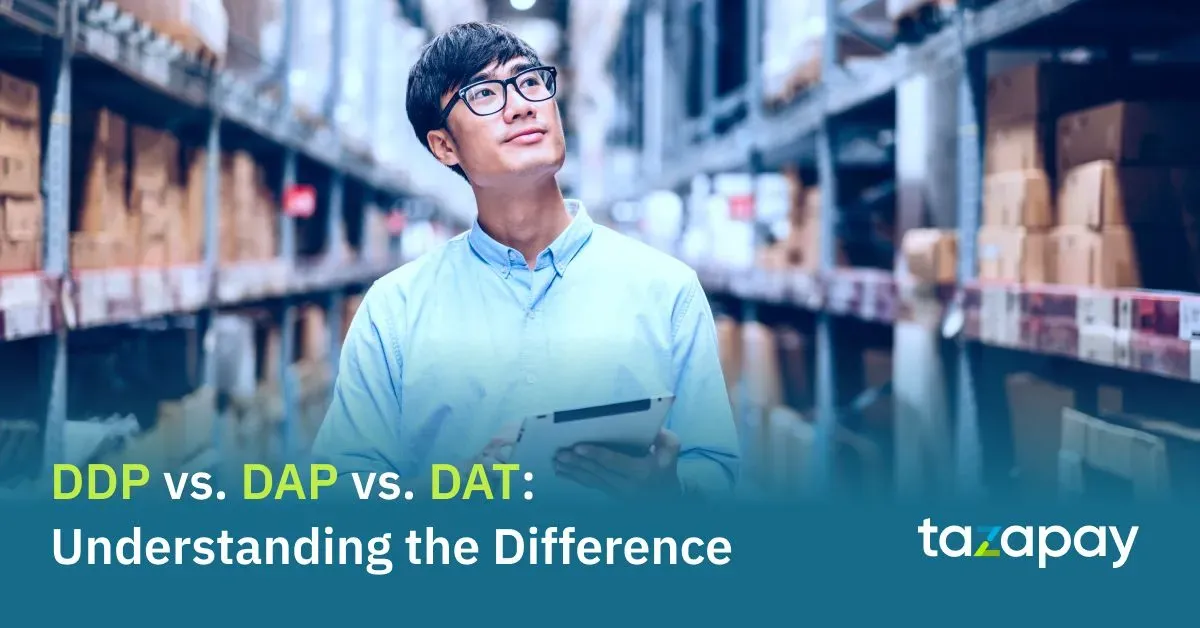- Home
Blog Blog
Customs & Incoterms Customs & Incoterms
How to Decide the Right Incoterm for Your Cross-Border Trade
How to Decide the Right Incoterm for Your Cross-Border Trade

The incoterm spells out the seller and buyer obligations and risks pertaining to the transfer of goods, cost, insurance and tariffs used in international trade contracts. The primary objective of Incoterms is to prevent or minimise uncertainties of different interpretations of such rules in different locations. The following sections list the best incoterms for buyers and sellers:
Incoterms for buyers to consider:
As a cargo buyer, you must select the incoterms that offer the highest degree of end-to-end control, competitive origin, transportation and destination costs.
EXW incoterm: The EXW (Ex Works) incoterm must strictly be used by buyers fully cognisant of the export, import and customs laws. The EXW incoterm describes the delivery and loading of goods by the seller at their place of business, usually in their factory, warehouse or office for the buyer’s appointed freight forwarder to send the shipment to the buyer.
FCA incoterm: (Free Carrier) incoterm means that a seller of goods is responsible for the delivery of those goods to a destination specified by the buyer. When used in trade, the word ‘free’ means the seller has an obligation to deliver goods to a named place for transfer to a carrier. This incoterm is suitable for all transport modes but origin activities must be clearly defined i.e. loading, unloading, equipment requirement.
DPU incoterm: The DPU (Delivered Place Unloading) incoterm allows buyers to import goods at the most affordable costs with fewer corresponding responsibilities. The seller makes deliveries, offloads at the port of destination and handles all costs during this process. The DPU potentially saves costs but the buyer has less control over the freight and delivery times.
Incoterms for sellers to consider:
Sellers can get greater cost efficiency, better delivery times and enhance customer excellence by selecting the right incoterms.
DDP incoterm: The DDP (Delivered Duty Paid) incoterm tasks the seller with delivering the goods to the buyer’s named facility at destination. The DDP incoterm makes the seller responsible for a greater – if not the entire – part of the shipping process. It is important to know local trading and customs laws and ensure that the freight forwarder is present at destination for clearance, tax payment and delivery to buyer.
CIP incoterm: The CIP (Carriage Insurance Paid-To) incoterm makes the seller responsible for the risks and cost for delivering the goods to the carrier nominated by the seller. The seller pays for cost of carriage and minimum insurance but the seller’s risk ends at the named place of shipment at destination. This works for a buyer who has no export experience at origin or no freight buying capabilities.
All parties must remember that a set of incoterms that works for the buyer may not necessarily work out for the seller. Hence, selecting the right set of incoterms for international trade requires negotiation and mutual understanding. This helps to avoid misunderstanding, dispute or litigation between Parties.
For more information tailored to your needs, please go to our Knowledge centre, where you can find out more about incoterms, customs details and download relevant documents and samples.
Category

Customs & Incoterms
How to Decide the Right Incoterm for Your Cross-Border Trade
Related Articles

DDP vs. DAP vs. DAT: Understanding the Difference

2010 vs. 2020: What Has Changed in Incoterms






